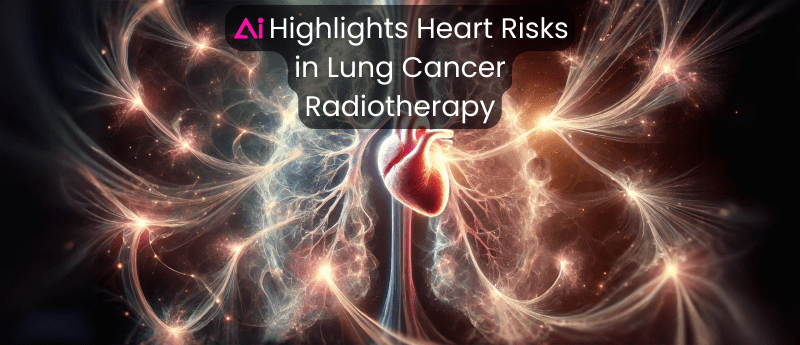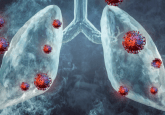AI Highlights Heart Risks in Lung Cancer Radiotherapy

A new study study led by researchers at Brigham and Women’s Hospital in (MA,US) has leveraged AI to uncover crucial insights into the impact of lung cancer radiation therapy on heart health. The study, published in JACC: CardioOncology, reveals specific cardiac arrhythmias linked to different levels of radiation exposure to various heart structures.
Patients undergoing radiation therapy for non-small cell lung cancer (NSCLC) frequently experience cardiac arrhythmias. Due to the heart’s proximity to the lungs, radiation intended to target tumors can inadvertently damage the heart, leading to cardiovascular complications and extended hospitalization.
“Radiation therapy can have serious and immediate consequences for a patient’s cardiovascular health,” explained Raymond Mak, MD, senior study author from the Department of Radiation Oncology at Brigham and Women’s Hospital. “Our goal is to inform oncologists, cardiologists, and patients about these risks and develop strategies to minimize them.”
The Study
Dr. Mak and his team developed a deep learning model to analyze the connection between distinct arrhythmia classes and radiation doses to specific parts of the heart in 748 patients treated for locally advanced NSCLC.
Key findings include:
- About 17% of patients experienced at least one grade 3 cardiac arrhythmia, considered serious and likely requiring intervention or hospitalization.
- Nearly 33% of patients with cardiac arrhythmias also experienced major adverse cardiac events.
- The risk for different types of cardiac arrhythmias varied based on the pathophysiology and cardiac structures exposed to different levels of radiation.
Dr. Mak noted, “an interesting part of what we did was leverage artificial intelligence algorithms to segment structures like the pulmonary vein and parts of the conduction system to measure the radiation dose exposure in over 700 patients. This saved us many months of manual work.”
Implications for Patient Care
For radiation oncologists, this research can improve screening and help pinpoint which parts of the heart should receive limited exposure to radiation to mitigate complications. This knowledge could lead to more personalized and safer treatment plans for NSCLC patients.
While the study focused on technical aspects of radiation therapy, its implications for patient care are significant. Future NSCLC patients may benefit from more targeted radiation treatments that minimize cardiac risks, potentially improving both short-term and long-term quality of life.
The Role of AI in Medical Research
The use of AI in this study highlights its growing importance in healthcare research. “not only does this work have potential clinical impact, but it also opens the door for using AI in radiation oncology research to streamline discovery and create larger datasets,” Dr. Mak explained.
By leveraging vast amounts of medical data and complex algorithms, AI can enhance diagnosis accuracy, optimize treatment planning, and improve patient outcomes across various medical fields.
Looking Ahead
This study marks a significant step forward in understanding the complex relationship between cancer treatment and cardiac health. As researchers continue to refine their understanding of these connections, patients can look forward to more effective and safer treatment options.
Future research may focus on developing AI-driven treatment planning tools that automatically minimize cardiac exposure during lung cancer radiation therapy, further improving patient outcomes.




